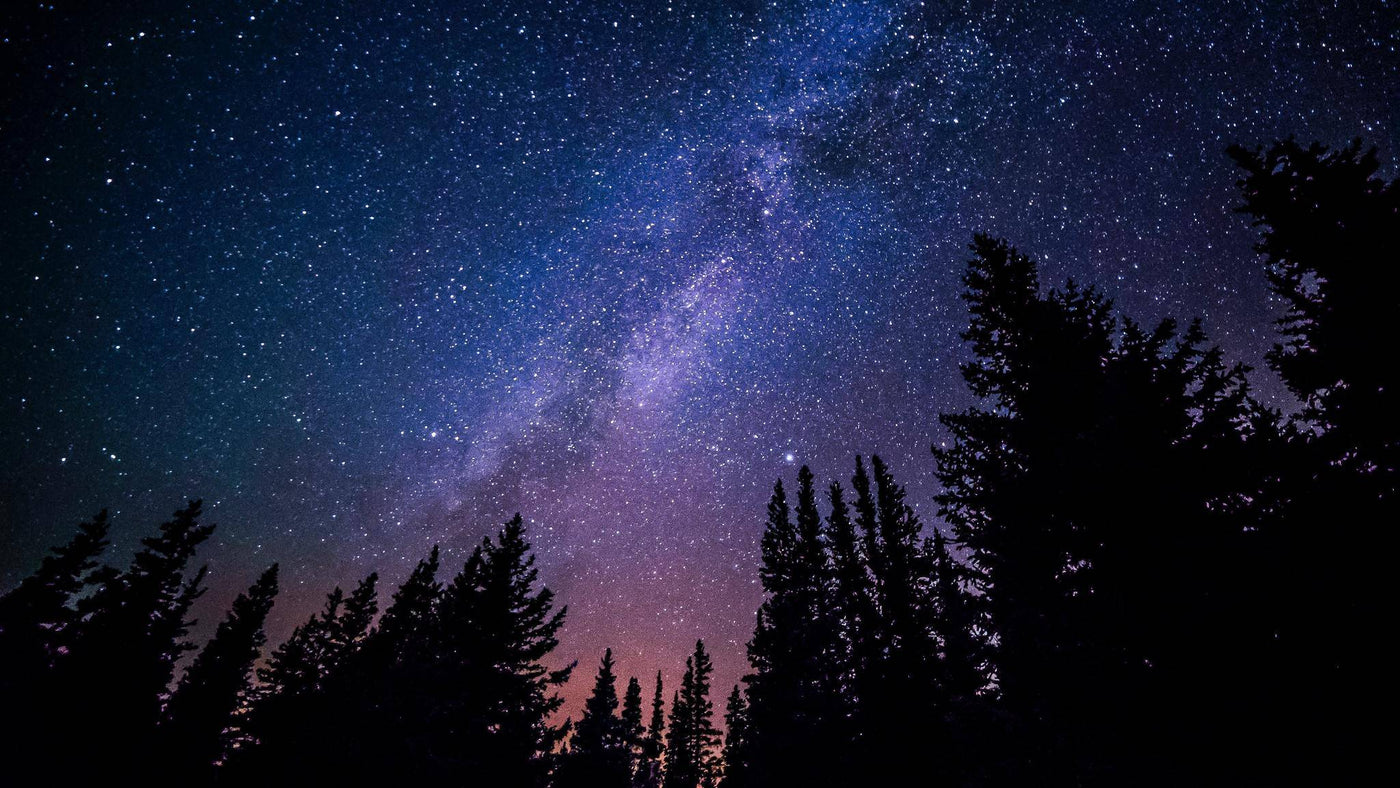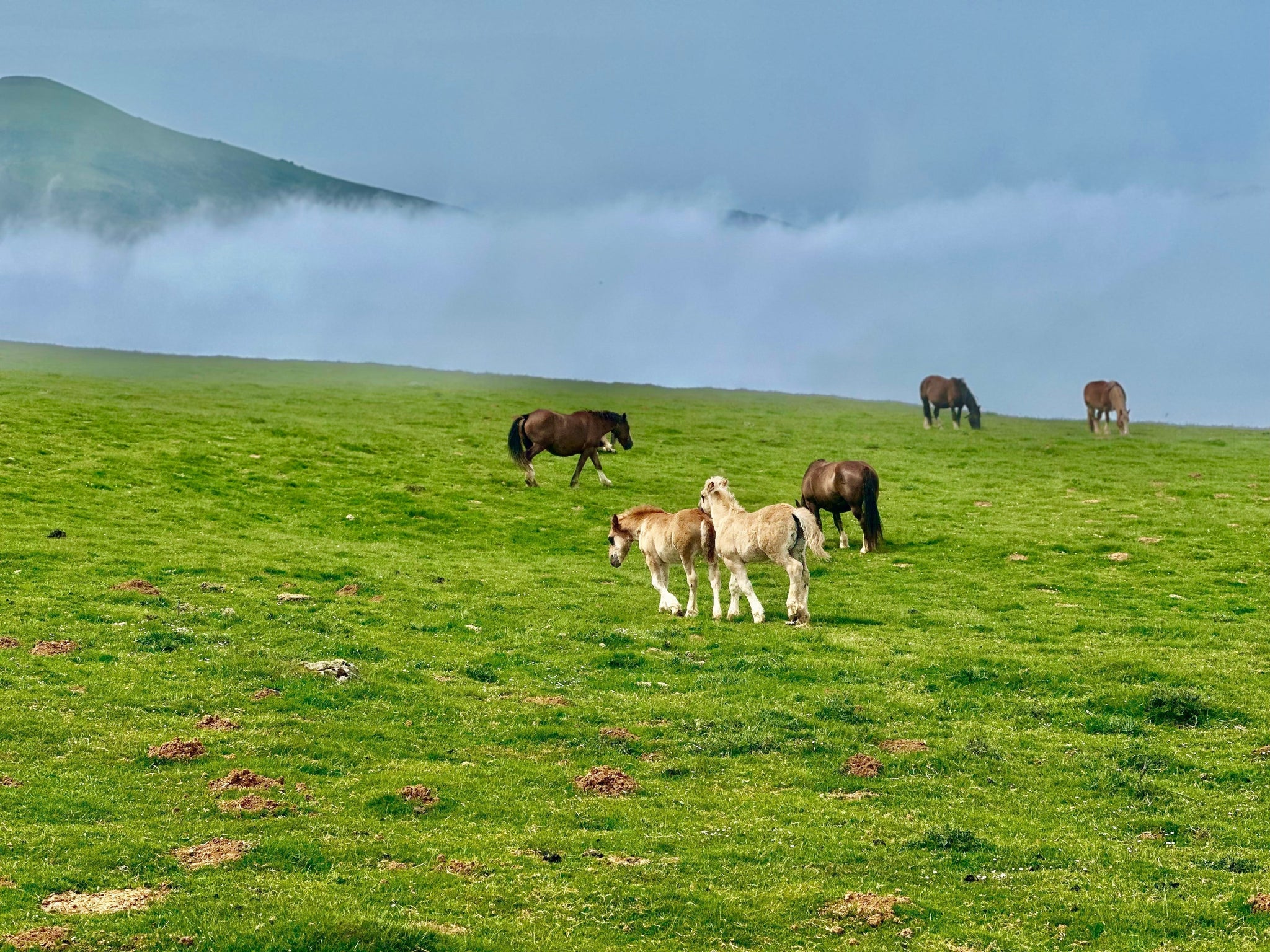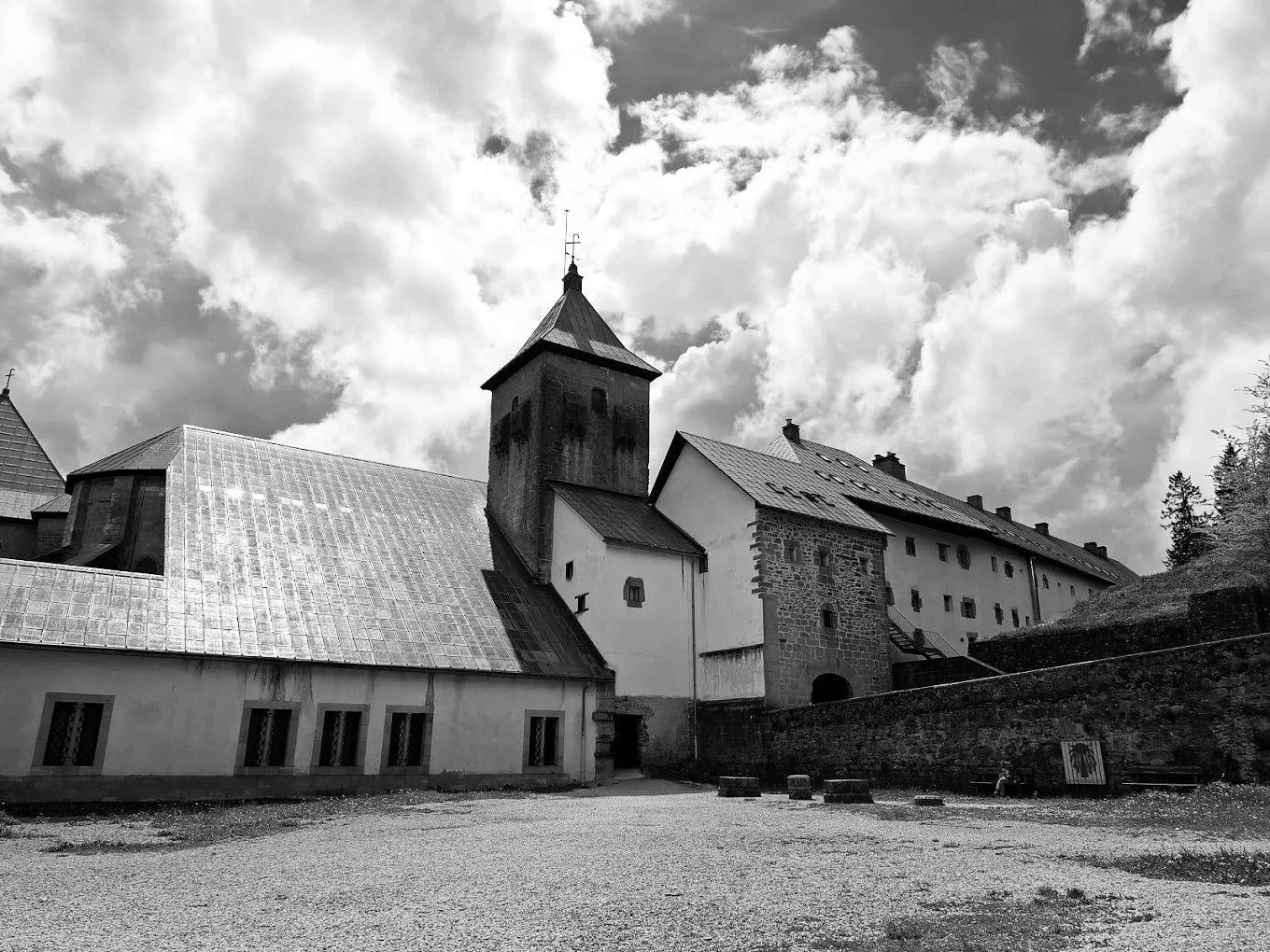
A (seemingly) cold-hearted woman with lips engraved in a down-turned position sputtered out her disgust at our being there. She muttered her admonishment, almost under her breath as if there were some tiny, sliver of her that objected to the reproach she dropped on us like a heavy crate at our feet. Quelling the joy of a family on bicycles, in a time when children cannot be contained the length of the day in school buildings, seemed just beyond the edge of her comfort zone. This is a private road, she’d said, and did we really need to come there every, single, day? She alluded to neighbors who would also appreciate if we would become more sporadic in our outings that put us for a few minutes (at most) in front of her two homes. We stood there, stunned, in our formerly favorite spot at the end of a path that seemed to take our breath away no matter how many times we arrived there.
In an instant, I decided to acquiesce and arrested my husband’s opportunity to make a case for our right to be there, though he could and would have. We didn’t plea our permissions granted by a gentleman a few houses down who pretended to be a wizard for our boys and, a couple months back, returned to the place reserved for the jovial when their time in this realm has come to an end. I recognized in the tone of the woman’s voice a quality I had no interest in quarrelling with. I was aware of rumors of volatile actions that occurred in her vicinity and involved her grown son some years back. I wanted to steer clear of it all and immediately knew the gig was up and we would be giving this luminous stretch of shoreline a good, long rest.
I watched as Adrian’s face fell hard and he experienced what it means to be human, among other, injured humans. As the woman strode off toward her second property across the dip in the road, he nearly cried and began to appeal his right to go to the spot where he and Jonah had hidden the sea glass. The area where they had buried it was located around the corner and down a stretch of rocky, coastline in the same place where he and I recently snuck away on a private outing that allowed him to bask, for a change, in the center of my attention. I had tucked myself between two boulders that came together like a little chair that grew warm in the spring sun while he pulled fruit-twists out of the backpack and spoke about The Guardians of Ga’Hoole with the authority of a college professor. It’s difficult to accept that someone might have gazed down upon us, there at a distance on the rocks, and imagined us as a menacing presence.
Although my chest felt heavy, like a dead, wet fish had landed in it, and I only wanted to flee the scene of our reproach, in some respects I understood the woman’s desire for her boundaries to be respected. I know what it means to crave quiet and a space of one’s own and how difficult it can be to articulate the need for it. My husband suspected another presence in the household had pushed for the confrontation. We cannot know the depths of another person’s motivations, nor the burdens they shoulder, but we can try to understand.
I asked Jonah and Adrian whether there was any way we might process our thwarted adventures beyond our own outrage. Jonah wondered whether we could befriend this come to life version of Olive Kitteridge. I briefly imagined us bringing a colorful bouquet to the woman who stiffly raked her yard or writing her a note. While I admired his suggestion and felt it might play out nicely in a fiction storyline, it seemed unlikely to smooth over the sharp edges we’d encountered. I shared a few more thoughts about privacy and pain and then changed the subject. We listed off the various other places we might ride and explore throughout the long summer in front of us with nowhere to go. Even so, the feeling of having lost something profound, lingered.
--
The bowl I’ve been using to collect our compost in the kitchen is a piece of Union K porcelain. Last summer, after I had surgery, the dish showed up on my front porch filled with red, blue and purple berries along with a note from a kindred friend. We met at the library years ago when I would pile into a fluffy, chambray chair with Jonah and my pregnant belly was like a third occupant. My eyes would grow heavy as I read, cuddled up there, fighting slumber. I often saw a woman with springy curls that fell halfway down her back and bright, kind eyes. She spoke in a gentle tone with her grandson who was around the same age as Jonah and over time we became friends. I only visited her home once, but still I summon the image of her magnificent library and each time I use her dish I vow to return it soon and think about the way she defies molds around what it means to age.
The bowl sits in a corner of the counter near the toaster oven and the stand where I keep the sweet potatoes. Throughout the day it becomes filled with eggshells and carrot peels, avocado rinds and the ends of celery. It’s often after dark by the time I have a chance to carry it out to the black bin sitting across the driveway, behind the woodshed and to the right of the garden. I peel off my socks and sometimes flip on three sets of lights, illuminating the porch and the lanterns lining the driveway. Other times, when I’m feeling wolfish, I’ll make my way out into the dark, drinking in the fragrant, seaweed-air, allowing my bare feet to experience the array of textures beneath them, without the distraction of artificial light.
Three wooden steps down from the front porch, damp already from the drop of thick, foggy air. A stretch of cold, stone slabs along the pathway where the Buddha statue rests in contentment. The gritty paved surface of the driveway, rough like an exfoliant across my heels. Soggy, spring grass that squishes when I sink into it, sometimes a rinse of mud flooding between my toes.
Walking through the dark I have thought about the note I received warning of a coyote sighting a few streets over. I worry that fear might inspire injury to an innocent beast. Still, on the blackest nights, I listen for any rustling in the woods as I near the bin, backed up to a grouping of trees.
Once, I left the bowl outside the side door, thinking I would get to it in the morning but also a little curious whether the groundhog who lives under our shed might come and eat from it. In the morning, the dish was completely empty of the sweet potato peels I had left there, and we enjoyed lively speculation about who had gobbled up the sweet feast.
On another night, after days of rain, I used the back entrance to go out, by the garage. I stepped into a puddled driveway. Although there was an impulse to move quickly through the cold air, temperatures having already plummeted, I slowed my pace. Stopping, I looked up into the night sky, noticing a peppering of stars. Lengthening my breath, I dropped my internal barrier to the brisk air and entered into a place of acceptance where my quickened heartbeat could slow, my jaw could soften, and I could land more fully into the place where I was without the impulse to leave.
I noticed the glowing, blackish-blue space between the stars and across the entire sky, taking note of my place beneath it. The vast universe above mirrored both my insignificance as a miniscule being in this boundless world as well as the overwhelming sense we are all somehow connected to that magnificence up above that can so easily be overlooked or forgotten. That means all of us, including the woman at the end of the road, the friend who showed she cared, and everyone else in the world—including you, and including me.
Subscribe to my mailing list!
Leave a comment (all fields required)
Comments will be approved before showing up.


